Time will tell how bad the fallout will be for several senators who voted to convict President Trump of one or both of the two Articles of Impeachment on February 5, 2020. We can already see, as early as the next day, how cruel Trump, his family members and his cronies could be toward Utah Senator Mitt Romney. Here we will share some inspiring, if not also courageous, quotes from the floor speeches of three senators explaining their votes to convict Trump in his impeachment trial.
Senator Doug Jones, Democrat from Alabama, won a special election to the Senate in December 2017 in a very red state: Alabama overwhelmingly supported Trump in the 2016 election. Jones recognizes that his votes to convict Trump on both counts could well cost him reelection this year. Here are excerpts from Sen. Jones’ speech:
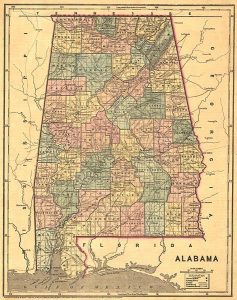 “[O]n the day I was sworn in as a United States Senator, I took an oath to protect and defend the constitution. Just last month, at the beginning of the impeachment trial, I took a second oath to do fair and impartial justice according to the same constitution I swore to protect. As I took the oath and throughout the impeachment trial, I couldn’t help but think of my father. As many of you know, I lost my dad over the holiday recess. While so many were arguing over whether or not the Speaker of the House should send articles of impeachment to the Senate, I was struggling with watching him slip away. . . My dad was a great man, a loving husband, father, grandfather, and great grandfather who did his best to instill in me the values of right and wrong as I grew up in Fairfield, Alabama.
“[O]n the day I was sworn in as a United States Senator, I took an oath to protect and defend the constitution. Just last month, at the beginning of the impeachment trial, I took a second oath to do fair and impartial justice according to the same constitution I swore to protect. As I took the oath and throughout the impeachment trial, I couldn’t help but think of my father. As many of you know, I lost my dad over the holiday recess. While so many were arguing over whether or not the Speaker of the House should send articles of impeachment to the Senate, I was struggling with watching him slip away. . . My dad was a great man, a loving husband, father, grandfather, and great grandfather who did his best to instill in me the values of right and wrong as I grew up in Fairfield, Alabama.
“He was also a fierce patriot who loved this country. . . . I know he would have put his country before any allegiance to any political party or even to any president. . . . He joined the Navy at age 17 to serve our great military. That service and love of country shaped him into the man of principle that he was, instilling in me those same principles. I think of him, his patriotism, his principles and how he raised me.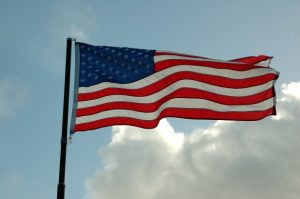
“. . . I did not run for the Senate hoping to participate in the impeachment trial of a duly elected president, but I cannot and will not shrink from my duty to defend the constitution and to do impartial justice. . . . Throughout the trial one piece of evidence continued to stand out for me. It was the President’s statement that under the constitution we have article two and I can do anything I want. That seems to capture this President’s belief about the presidency, that he has unbridled power, unchecked by Congress or the judiciary or anyone else. That view, dangerous as it is, explains the President’s actions toward Ukraine and Congress. . . . The evidence clearly proves that the President used the weight of his office and the weight of the United States government to seek, to coerce a foreign government, to interfere in our election for his personal political benefit. . . . Impeachment is the only check on such presidential wrongdoing.
“[A]fter careful consideration of the evidence developed in the hearings, the public disclosures, the legal precedents in the trial, I believe that the President deliberately and unconstitutionally obstructed Congress by refusing to cooperate with the investigation in any way. 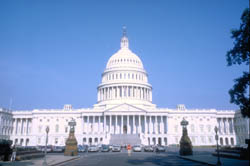 While I am sensitive to protecting the privileges and immunities afforded to the President and his advisors, I believe it’s critical to our constitutional structure that we also protect the authorities of the Congress of the United States.
While I am sensitive to protecting the privileges and immunities afforded to the President and his advisors, I believe it’s critical to our constitutional structure that we also protect the authorities of the Congress of the United States.
“Here it was clear from the outset that the President had no intention whatsoever of accommodating Congress when he bought both witnesses and documents from being produced. In addition, he engaged in a course of conduct to threaten potential witnesses and smear the reputations of the civil servants who did come forward and provide testimony. The President’s actions demonstrate a belief that he is above the law, that Congress has no power whatsoever in questioning or examining his actions and that all who do so do so at their peril.
“As I’ve said before, our country deserves better than this. They deserve better from the President. They deserve better from the Congress. We must find a way to come together to set aside partisan differences and to focus on what we have in common as Americans. While so much is going on in our favor these days, we still face great challenges, both domestically and internationally, but it remains my firm belief that united we can conquer them and remain the greatest hope for the people around the world.”
Sen. Kyrsten Sinema, Democrat from Arizona, also represents a state whose voters supported Trump in 2016, winning her seat against conservative Martha McSally in 2018. Like Jones, Sinema understands that her guilty votes on both articles leave her open to attacks by Trump supporters (although her seat is not up for reelection until 2024).
Sinema’s floor speech appealed to the example of our nation’s courageous founders, who had only recently overthrown a monarch.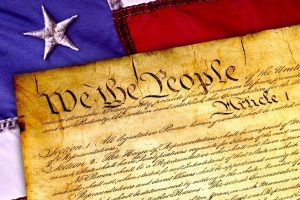
“Today, I vote to approve both articles, as my highest duty, and my greatest love, is to our nation’s Constitution. The facts are clear; security aid was withheld from Ukraine in an attempt to benefit the president’s political campaign. While White House attorneys claim this behavior is not serious, it is dangerous to the fundamental principles of American democracy to use the power of the federal government for personal or political gain.
“Worse, they failed to assure the American people that this behavior will not continue and that future national security decisions will be made free from personal interests.
“Our nation’s first president, George Washington, warned us how dangerous foreign interference is in his farewell address: ‘Against the insidious wiles of foreign influence … the jealousy of a free people ought to be constantly awake, since history and experience prove that foreign influence is one of the most baneful foes of republican government.’
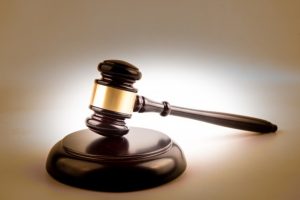 “Our founders created a system of checks and balances between the branches of government to prevent overreach and protect the liberties of American citizens. The administration’s wholesale refusal to participate in required negotiations with Congress when asked to provide witnesses and documents sets a dangerous precedent, upending the balance of power. Future presidents — of both parties — will use this case as a guide to avoid transparency and accountability to the American people. That should be gravely concerning to all of us.
“Our founders created a system of checks and balances between the branches of government to prevent overreach and protect the liberties of American citizens. The administration’s wholesale refusal to participate in required negotiations with Congress when asked to provide witnesses and documents sets a dangerous precedent, upending the balance of power. Future presidents — of both parties — will use this case as a guide to avoid transparency and accountability to the American people. That should be gravely concerning to all of us.
“Today’s outcome is not a surprise, and neither is the brokenness of Washington. The partisanship and ugliness we witnessed throughout this process in both parties is not a testament to who we are as Americans. The greatest threat we face, from forces both foreign and domestic, is the attempt to divide us as a people with vitriol and hatred. It is our duty as Americans to reject these attempts and remember who we are — a diverse people united in our love of country, of freedom, and of liberty.”
Finally, Mitt Romney, Republican Senator from Utah and former Governor of Massachusetts, became the first Senator ever to vote against his own party in an impeachment proceeding. Romney, invoking the memory of his late father George, Governor of Michigan in the 1960s, became emotional as he explained his guilty vote on the first of the impeachment articles. Trump, in his usual infantile and narcissistic way, has called out Romney – at the National Prayer Breakfast, of all places – for appealing to his religious faith in making his decision.
Liberals and progressives will, of course, disagree with Romney on many issues, but his words at this particular point in our history are inspiring and noteworthy.
“The Constitution established the vehicle of impeachment that is occupied both houses of our Congress these many days. We have labored to faithfully execute our responsibilities to it. . . . The allegations made in the articles of impeachment are very serious. As a Senator juror, I swore an oath before God to exercise impartial justice. I am profoundly religious. My faith is at the heart of who I am.
“I take an oath before God as enormously consequential. I knew from the outset that being tasked with judging the president, the leader of my own party would be the most difficult decision I have ever faced. I was not wrong. The house managers presented evidence supporting their case and the White House counsel disputed that case. . . .
 “The defense argues that the Senate should leave the impeachment decision to the voters. While that logic is appealing to our democratic instincts, it is inconsistent with the Constitution’s requirement that the Senate, not the voters, try the President. . . . The grave question the Constitution task senators to answer is whether the President committed an act so extreme and egregious that it rises to the level of a high crime and misdemeanor.
“The defense argues that the Senate should leave the impeachment decision to the voters. While that logic is appealing to our democratic instincts, it is inconsistent with the Constitution’s requirement that the Senate, not the voters, try the President. . . . The grave question the Constitution task senators to answer is whether the President committed an act so extreme and egregious that it rises to the level of a high crime and misdemeanor.
“Yes, he did. The President asked a foreign government to investigate his political rival. The President withheld vital military funds from that government to press it to do so. The President delayed funds for an American ally at war with Russian invaders. The President’s purpose was personal and political. Accordingly, the President is guilty of an appalling abuse of public trust. What he did was not perfect. No, it was a flagrant assault on our electoral rights, our national security and our fundamental values. Corrupting an election to keep oneself in office is perhaps the most abusive and destructive violation of one’s oath of office that I can imagine.
“In the last several weeks, I’ve received numerous calls and texts, many demanded in their words that I stand with the team. . . . I support a great deal of what the President has done. I voted with him 80% of the time, but my promise before God to apply impartial justice required that I put my personal feelings and political biases aside. 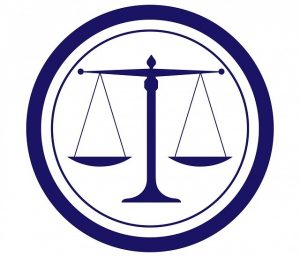 Were I to ignore the evidence that has been presented and disregard what I believe my oath and the Constitution demands of me for the sake of a partisan end, it would, I fear, expose my character to history’s rebuke and the censure of my own conscience. I’m aware that there are people in my party and in my state who will strenuously disapprove of my decision and in some quarters I will be vehemently denounced. I’m sure to hear abuse from the President and his supporters. Does anyone seriously believe that I would consent to these consequences other than from an inescapable conviction that my oath before God demanded of me?
Were I to ignore the evidence that has been presented and disregard what I believe my oath and the Constitution demands of me for the sake of a partisan end, it would, I fear, expose my character to history’s rebuke and the censure of my own conscience. I’m aware that there are people in my party and in my state who will strenuously disapprove of my decision and in some quarters I will be vehemently denounced. I’m sure to hear abuse from the President and his supporters. Does anyone seriously believe that I would consent to these consequences other than from an inescapable conviction that my oath before God demanded of me?
“. . . Like each member of this deliberative body, I love our country. I believe that our Constitution was inspired by Providence. I’m convinced that freedom itself is dependent on the strength and vitality of our national character. As it is with each Senator, my vote is an active conviction. We’ve come to different conclusions, fellow senators, but I trust we have all followed the dictates of our conscience.
“. . . My vote will likely be in the minority in the Senate, but irrespective of these things with my vote, I will tell my children and their children that I did my duty to the best of my ability believing that my country expected it of me. I will only be one name among many, no more, no less to future generations of Americans who look at the record of this trial. They will note merely that I was among the senators who determined that what the President did was wrong. Grievously wrong.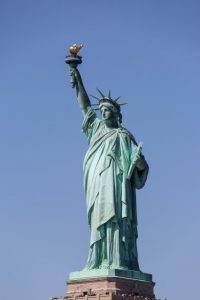
“We are all footnotes at best in the annals of history, but in the most powerful nation on earth, the nation conceived in liberty and justice, that distinction is enough for any citizen.”
Concluding Thoughts
In the midst of the President’s recriminations against these Senators and even witnesses in the House’s impeachment inquiry, the GOP’s recalcitrance in bringing forward scores of bills brought by the House of Representatives that would help millions of Americans, and the continuing divisions in our society, it is important – if only for our mental health – to try to salvage some signals of hope and unity. Jones, Sinema and Romney have demonstrated qualities that all fair-minded Americans would do well to emulate: putting country before party and doing what they felt was right despite inevitable public criticism and possible loss of their jobs. Citizens, especially voters, need to make every effort to do what we can – no matter how small – to preserve our precious democratic republic.
